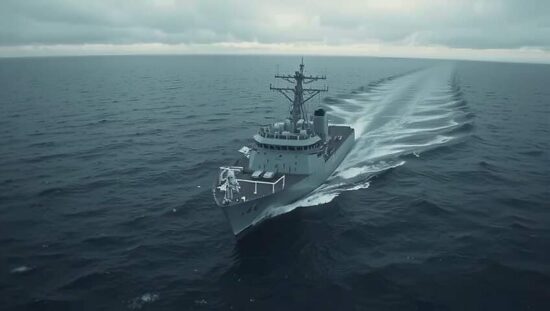The German Bundestag has approved an extension of the Bundeswehr’s deployment to the Red Sea, a move sparking renewed debate regarding Germany’s role in regional security and the potential ramifications of escalating involvement. In a Thursday evening vote, 436 parliamentarians supported the government’s proposal to continue participation in the EU-led Operation Eunavfor Aspides, designed to defend maritime traffic against attacks by Houthi militias. The coalition government commands 328 seats, highlighting substantial cross-party support, although the 69 dissenting votes and 77 abstentions signal underlying reservations.
The extension, approved with a reduced deployment ceiling of up to 350 soldiers – a decrease from the previously authorized 700 – reaffirms Germany’s commitment to protecting freedom of navigation and international trade in a region increasingly destabilized by geopolitical tensions. The rationale provided by the government emphasizes ongoing attacks by the radical Islamist Houthi militia, originating from areas under their control in Yemen. These attacks, they argue, are directly targeting maritime freedom, disrupting international commerce and jeopardizing the security of seaborne traffic within a volatile region.
The strategic significance of the Red Sea route – facilitating 15% of global maritime trade between Asia and Europe – cannot be overstated. The repercussions of the Houthi attacks, including forced rerouting and inflated freight rates, are already impacting consumers and businesses, creating indirect, yet tangible, economic consequences. Critically, these disruptions also impede the delivery of vital humanitarian aid to the region, compounding existing crises.
While the government frames the deployment extension as a necessary contribution to German and European security interests, conducted in close collaboration with EU partners, the reduction in troop numbers raises questions about the efficacy of the mission. Critics argue that a smaller contingent diminishes the protective capabilities of Eunavfor Aspides and potentially signals a lack of resolve in deterring future attacks.
The government insists that the continued EU presence reinforces the bloc’s willingness and ability to assume responsibility, sending a positive signal to transatlantic allies concerning the sharing of international security burdens. The operational area for Eunavfor Aspides encompasses a vast expanse, including the Bab al-Mandab Strait, the Strait of Hormuz and surrounding waters, with access to sovereign waters explicitly contingent on the consent of the respective coastal state.
Tasks assigned to Bundeswehr soldiers include safeguarding vessels against multidimensional attacks, escorting ships throughout the operational area, providing air-based reconnaissance and facilitating coordination, information sharing and logistical support with international partners. The mandate is currently valid until the end of October 2026, with associated operational costs estimated at approximately €23.9 million over the duration. The debate, however, is likely to intensify as the mission progresses, particularly regarding the long-term sustainability and ultimate impact of Germany’s involvement in the escalating regional conflict.





